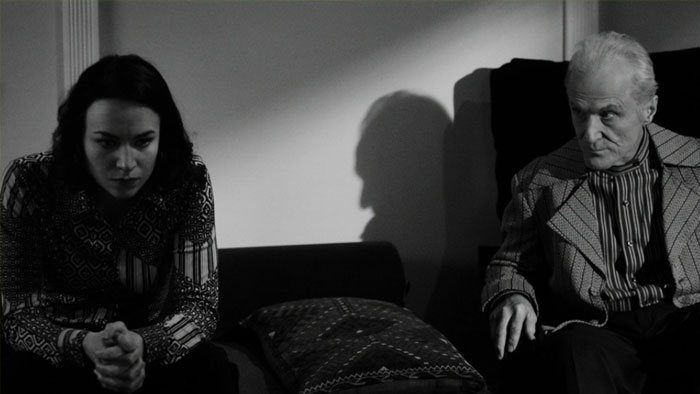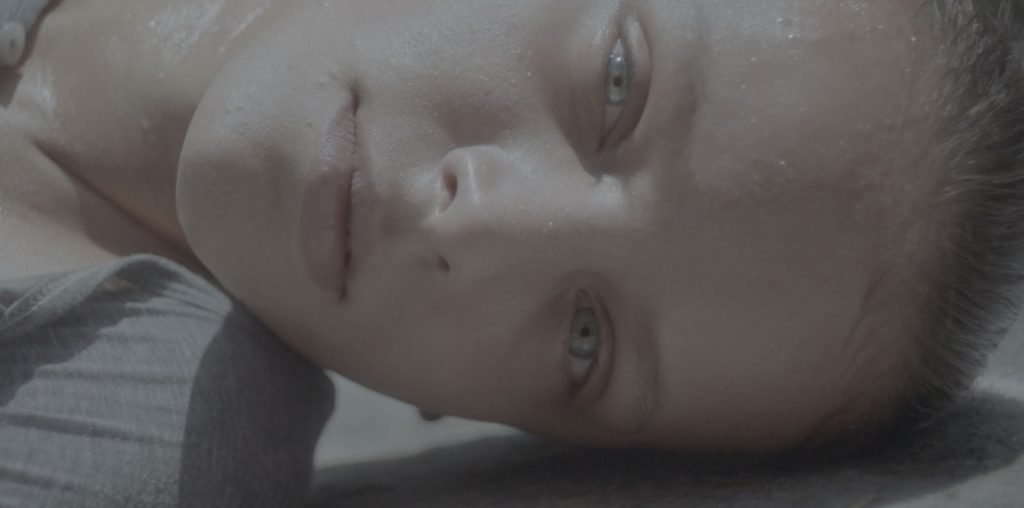
While not a household name in the United States, Jacques Lacan’s importance is paramount in Psychoanalysis and Philosophy. You cannot discuss late twentieth and twenty-first-century European Philosophy without invoking him. His clinical method took over France and large parts of South America, as he took Freud’s model and injected it with linguistics. Along the way, Lacan’s influential seminars yielded notions such as the Mirror Stage, The Symbolic, The Imaginary, The Real, and The Desire of the Other.
Lacan, it must be said, was no stranger to controversy. There was friction between the philosopher and professional Psychoanalytic organizations over his variable-length clinical sessions with patients. They could last anywhere from a few minutes to hours, depending on whenever Lacan felt a breakthrough had occurred. His theoretical writing was also notoriously impenetrable for the uninitiated. It is precisely this surface impenetrability that makes writer-director Richard Ledes’ Adieu Lacan such a challenge. How does one begin to capture the complexity of Lacan’s thought in narrative form?
Ledes does not attempt to encapsulate all of Lacan in one film, as that would be foolhardy. Instead, the filmmaker obliquely captures him in the course of several clinical sessions with a Brazilian patient. Seriema (Ismenia Mendes) travels to Paris from Brazil, seeking treatment from the great Jacques Lacan (David Patrick Kelly). It is evident that she’s deeply troubled as two miscarriages led to her partner leaving her, which still haunts her. Lacan uncovers additional layers of psychoneurosis in Seriema. She feels discomfort over her French being constantly corrected, her Lebanese ancestry and the way her grandfather and father were discriminated against in Brazil is still an open wound. Of course, a staple of any Psychoanalytic session, sex is a particularly thorny subject for her. Lacan incessantly nudges Seriema to speak, eventually leading to the revelation of her father’s role in her neurosis.

“Lacan uncovers additional layers of psychoneurosis in Seriema.”
Adieu Lacan feels like a stage drama in cinematic form. And indeed, the film was inspired by the story of Betty Milan, a Brazilian psychoanalyst and writer, who was Lacan’s analysand and wrote a play based on the experience. One cannot help but notice its genealogy given the stage-like dialogue, the scarce number of actors and locations — the action mostly takes place in Lacan’s office — and all the close-ups of the actors delivering their lines. Ledes effectively coheres the source material with cinematic visual language. The use of black and white creates literal and figurative shadows — shadows cast by the unconscious. Valentina Caniglia’s cinematography fulfills the narrative function as much as the script.
Kudos must also be given to Ledes for choosing an actor like Mendes to play Seriema. Her initial resistance to Lacan’s queries and her combativeness — erected as a defensive wall that prevents her from dealing with the difficult issues bubbling in her unconscious — are masterfully pulled off by Mendes. Close-up shots of her face as she recounts painful memories show a smooth canvas marked by microexpressions of resistance, pain, and conflict.
When the focus is on Mendes, Adieu Lacan clicks. When the focus is on Lacan, the film falters. This is not so much a critique of Kelly’s performance as it is of the way Lacan is written. His personal drama and impending death are not as compelling as the unfolding drama with Seriema’s history and trauma. Lacan’s character, at times, is written as a tad too sage-like. This is an irritant of mine whenever intellectual greats are portrayed in fiction. It must also be noted, as someone who has a profound interest in Lacan’s work, I found very few instances wherein Lacan’s unique contributions to Psychoanalysis came forth.
There is a signature Lacanian scene wherein Lacan notices a convergence between dream imagery and language involving rats and Seriema’s father’s name. There are references to the object of desire of the other, another key Lacanian formulation. But these references to Lacan’s work are too rare to work. To be fair, Ledes could not have chosen a more difficult intellectual figure to explore in Adieu Lacan. Lacan’s theoretical output is very difficult to translate into narrative form. Credit must be given to Ledes for attempting a difficult Axel jump. Unfortunately, he does not quite nail the landing.

"…masterfully pulled off by Mendes."


